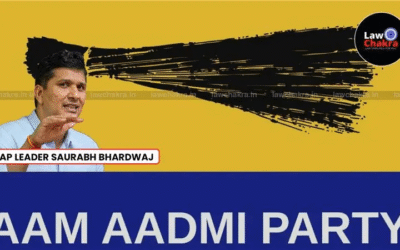BNS Section 222 – Omission to assist public servant when bound by law to give assistance
The Indian Penal Code (IPC) Section – 187
Understanding BNS-222: Omission to Assist Public Servant When Bound by Law to Give Assistance
Failing to assist a public servant when legally required to do so is a serious offense. BNS-222 is a legal provision that penalizes individuals who intentionally neglect to provide assistance to public servants in the execution of their duties. Let’s break this down in simple terms.
What is BNS-222?
BNS-222 is a law that punishes individuals who, when legally bound to assist a public servant, intentionally fail to provide such assistance. This ensures that public servants can perform their duties effectively with the necessary support.
Key Elements of BNS-222
To understand this law, let’s look at its main components:
| Element | Description |
|---|---|
| Legal Obligation | The person must be legally bound to assist a public servant. |
| Intentional Omission | The person must intentionally fail to provide the required assistance. |
| Public Servant | The assistance must be requested by a public servant performing official duties. |
Types of Offenses and Punishments
BNS-222 covers two scenarios with different penalties:
Clause (a): General Offenses
| Punishment | Details |
|---|---|
| Imprisonment | Up to 1 month. |
| Fine | Up to ₹2,500. |
| Both | The court may order both imprisonment and a fine. |
Clause (b): Specific Offenses (Demand for Assistance)
| Punishment | Details |
|---|---|
| Imprisonment | Up to 6 months. |
| Fine | Up to ₹5,000. |
| Both | The court may order both imprisonment and a fine. |
Legal Procedure for BNS-222
Here’s how the legal process works for this offense:
| Aspect | Details |
|---|---|
| Cognizable or Non-cognizable | Non-cognizable (police cannot arrest without a warrant). |
| Bailable or Non-bailable | Bailable (the accused can seek bail). |
| Court Jurisdiction | The case is tried by any Magistrate. |
Why is BNS-222 Important?
This law is crucial for the following reasons:
- Ensures Cooperation: It ensures that individuals assist public servants when legally required to do so.
- Maintains Order: It upholds the rule of law by ensuring that public servants receive the necessary support to perform their duties.
- Protects Public Servants: It safeguards public servants from being hindered due to lack of assistance.
Key Takeaways
- BNS-222 applies to individuals who intentionally fail to assist a public servant when legally required to do so.
- The offense is divided into two scenarios: general offenses and specific offenses where assistance is demanded for critical tasks.
- Punishment varies:
- For general offenses: Up to 1 month imprisonment, ₹2,500 fine, or both.
- For specific offenses: Up to 6 months imprisonment, ₹5,000 fine, or both.
- The case is non-cognizable, bailable, and tried by any Magistrate.
Example Scenario
Let’s take an example to understand this better:
- Case (Clause a): A person is legally required to assist a government officer in conducting a survey but intentionally refuses to help.
- Outcome: The person can face up to 1 month imprisonment, a ₹2,500 fine, or both.
- Case (Clause b): A police officer demands assistance from a person to help apprehend a criminal, but the person intentionally refuses to cooperate.
- Outcome: The person can face up to 6 months imprisonment, a ₹5,000 fine, or both.
Final Thoughts
BNS-222 is an important law that ensures individuals assist public servants when legally required to do so. If you ever come across someone intentionally refusing to provide assistance, remember that the law is there to address such misconduct.
For specific legal advice or assistance, consult a qualified lawyer.
Disclaimer: This blog is for informational purposes only and does not constitute legal advice. For specific legal guidance, please consult a professional lawyer.

